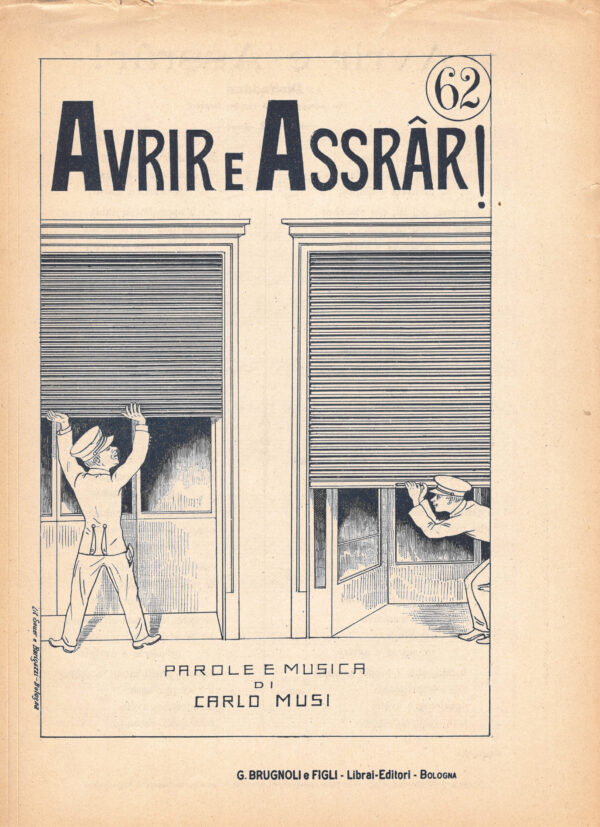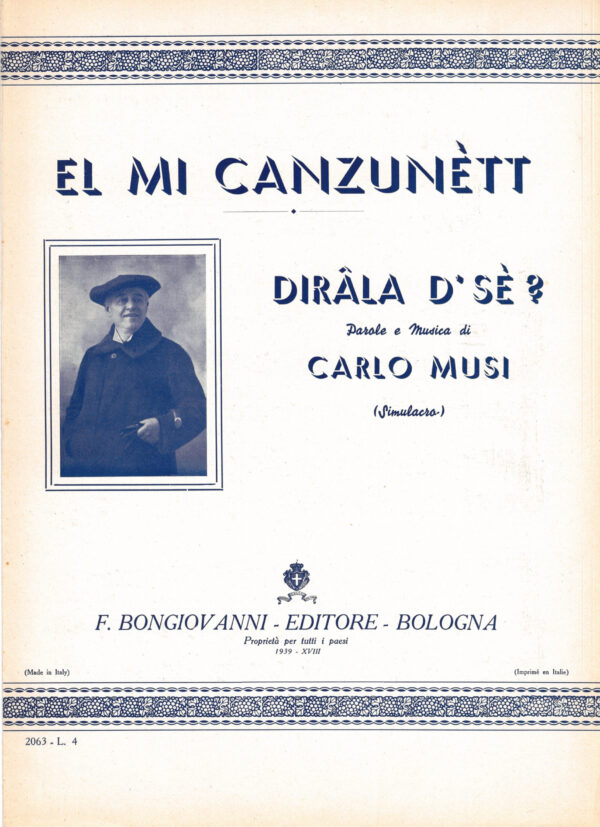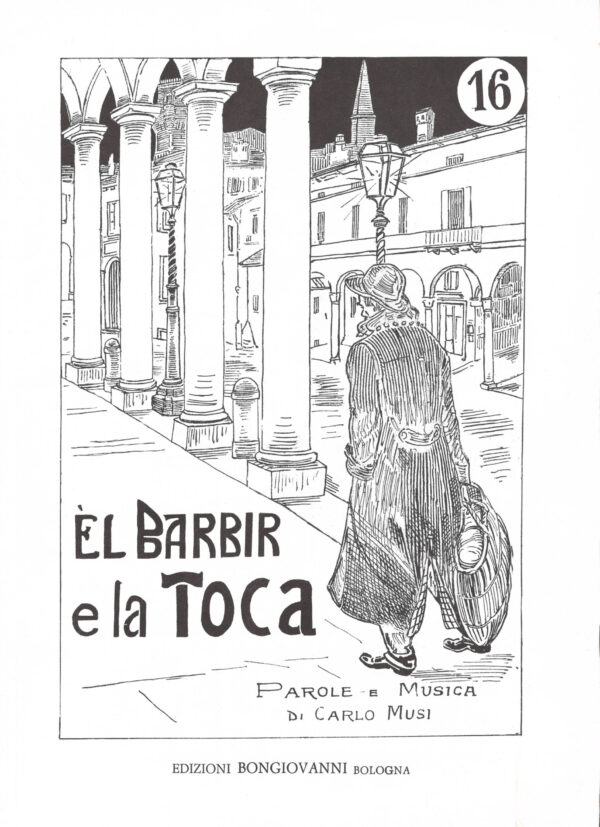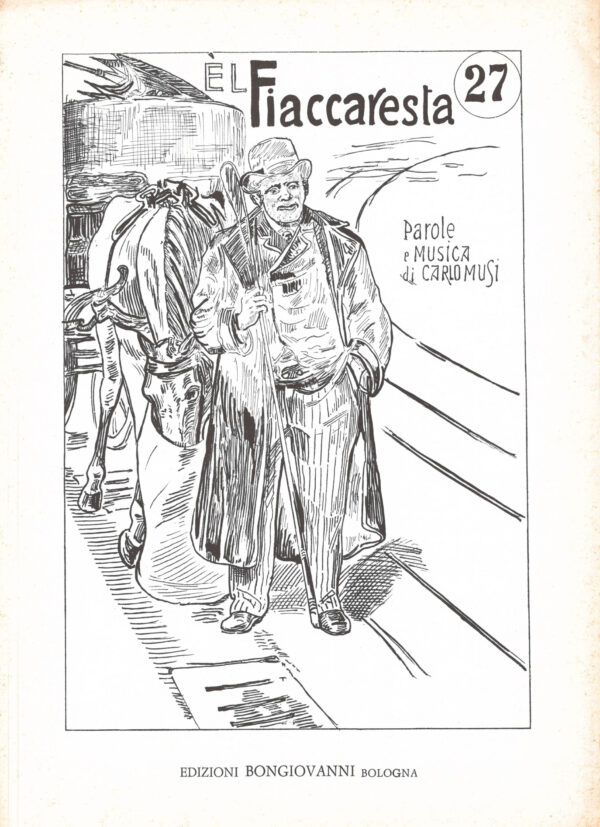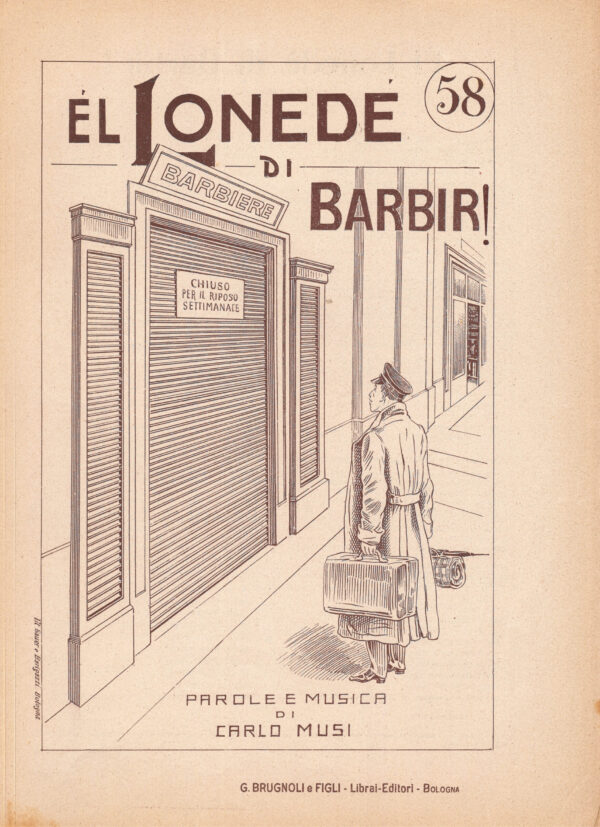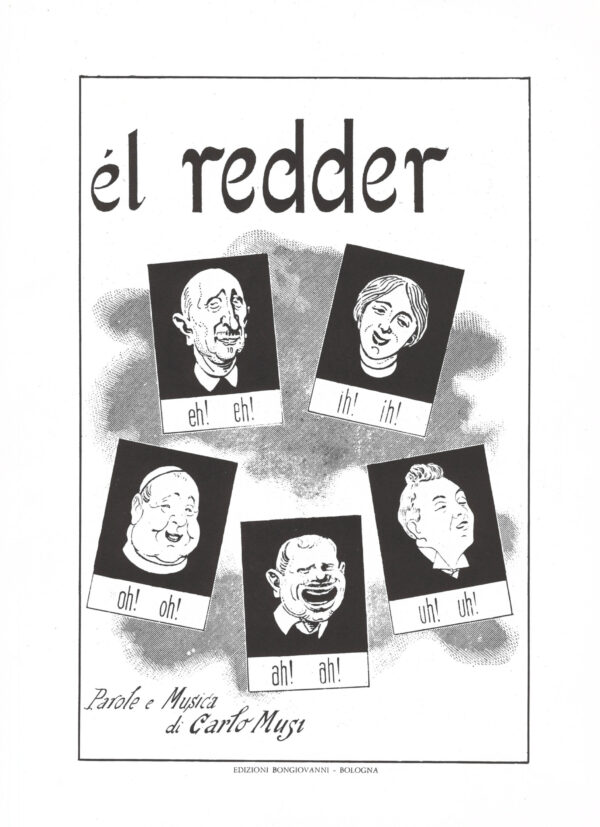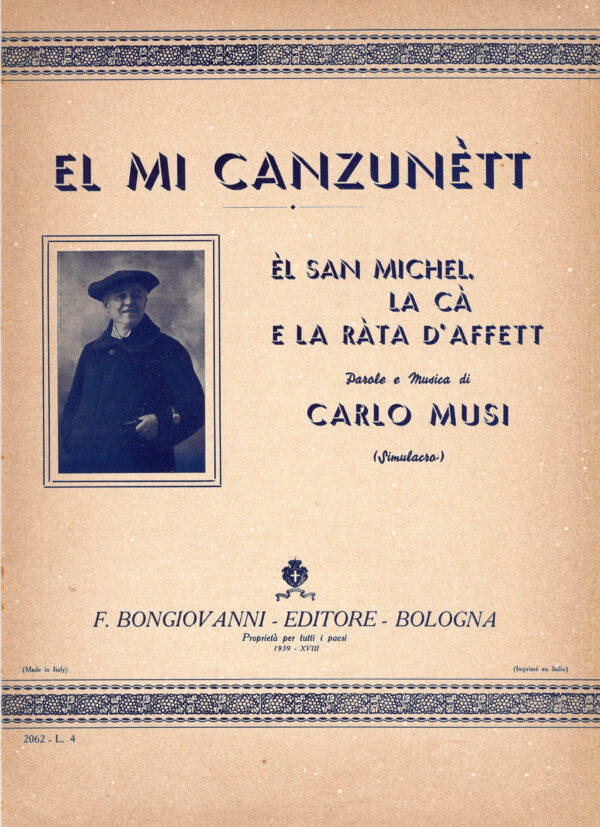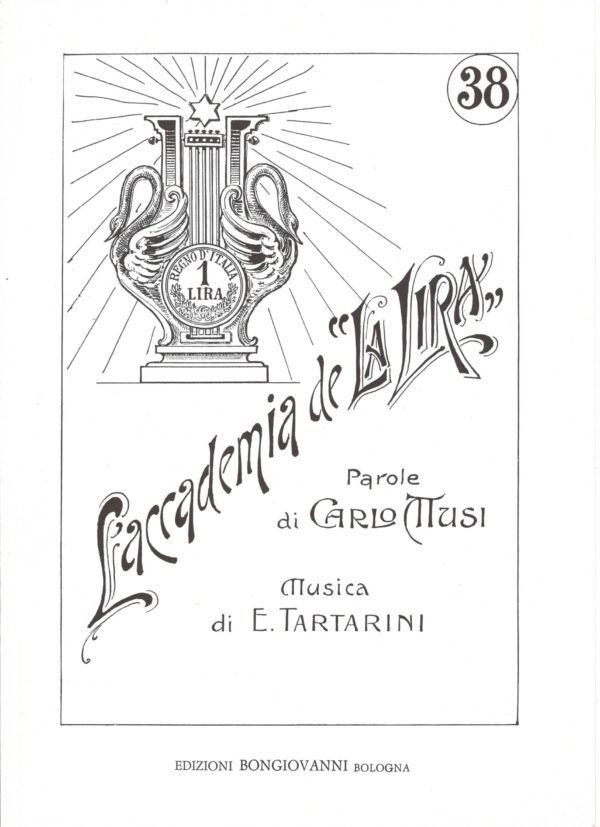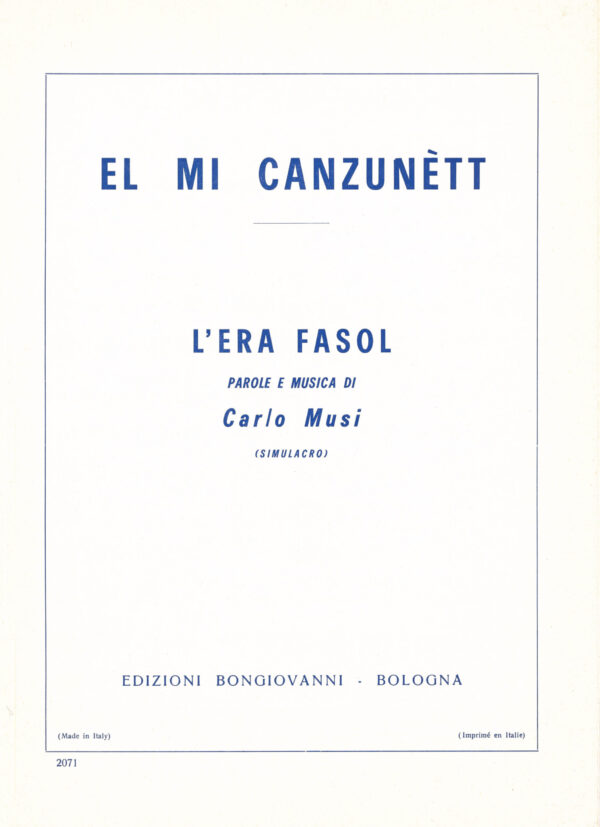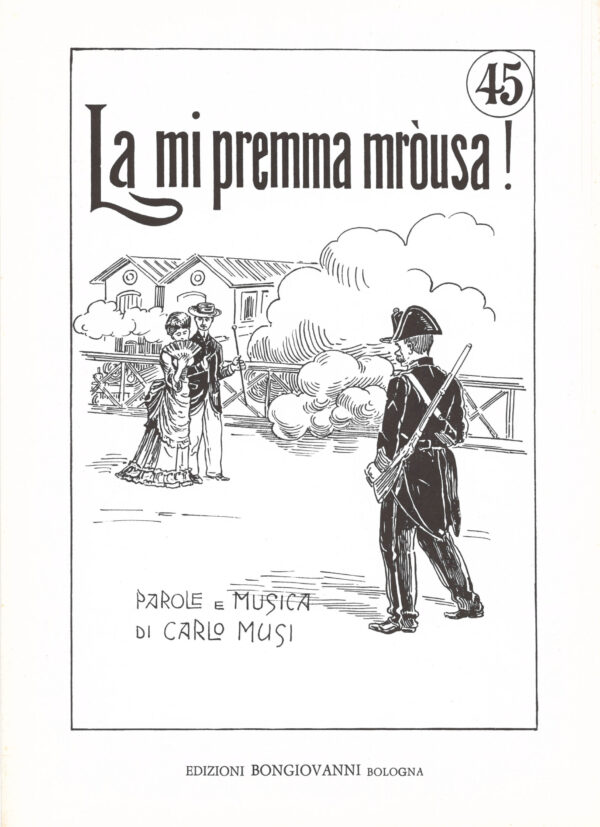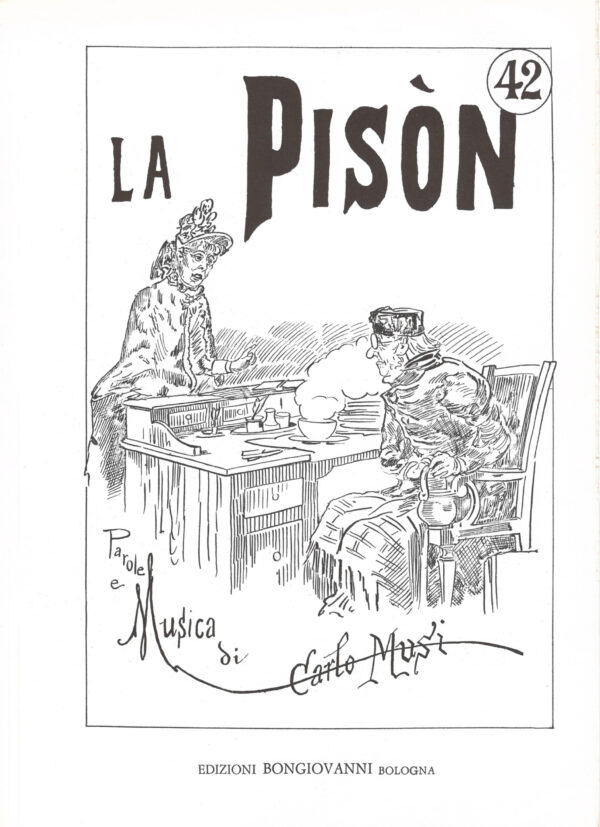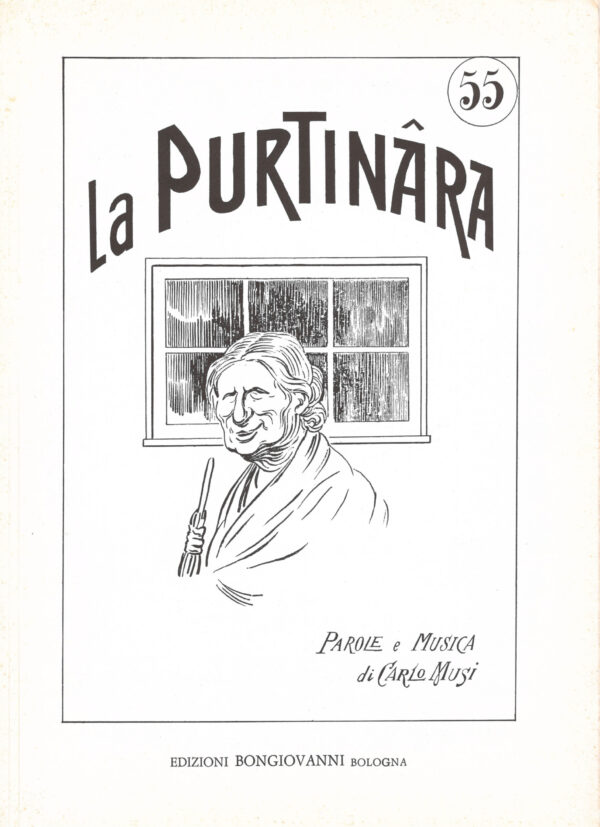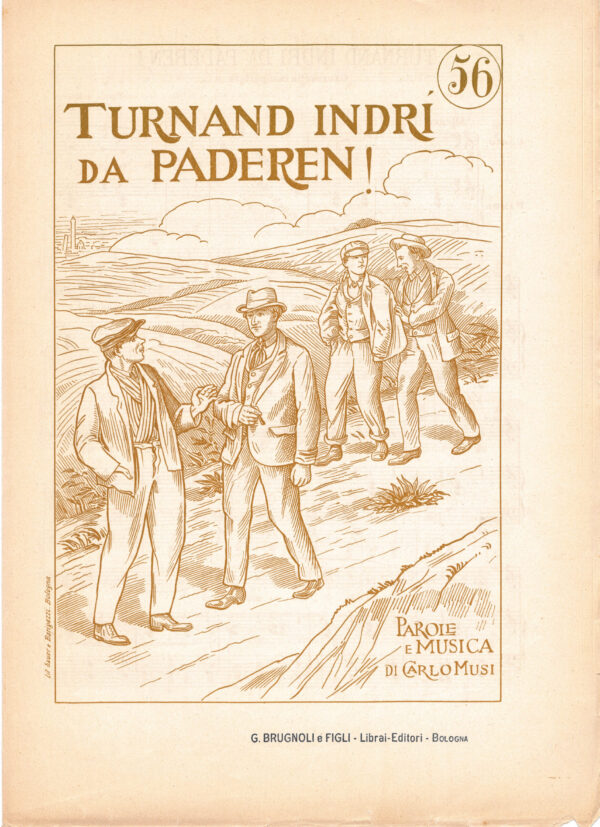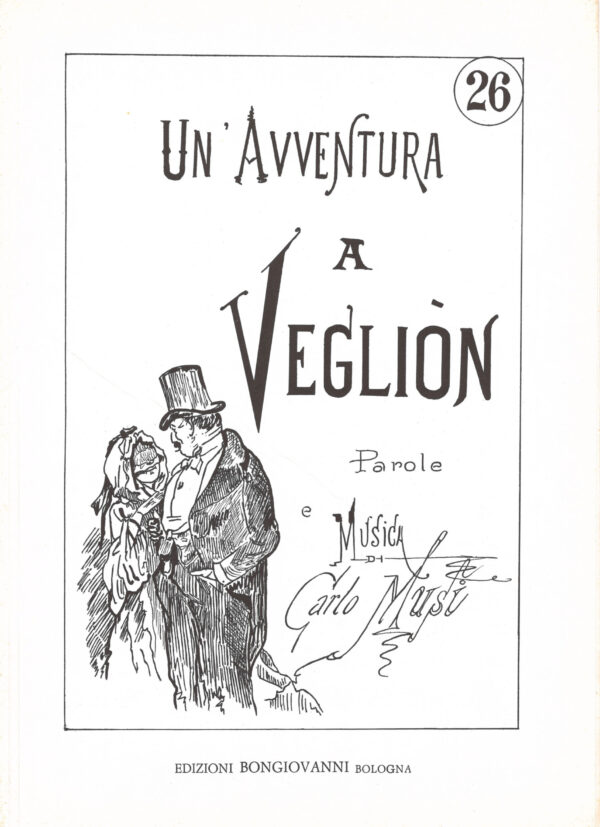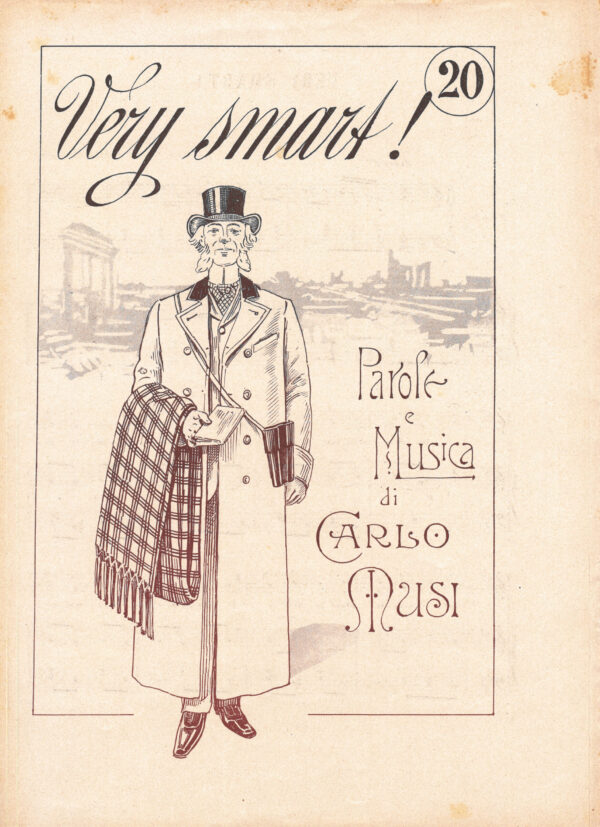Carlo Musi
Carlo Musi was a canzonettista (a singer of light songs) and dialect actor. Coming from a humble background—he was the son of a servant—he struggled to support his artistic vocation by taking on various jobs: shop clerk, fabric merchant, traveling salesman, and, from 1901 onwards, an employee of the Royal Postal Service. Many of his monologues, poems, and canzonette were penned on the back of postal forms from the station’s offices. Known not only for his talent but also for his reputation as an unrepentant party-goer, he was described as someone who “masticates the night,” a jovial night owl fond of nightlife, good food, and fine wine. For instance, passersby once saw him asleep in the window of Baroni’s shop. Testoni referred to him as “the last true heir and descendant of Giulio Cesare Croce,” while Fausto Carpani called him “a Bolognese Petrolini.” He composed highly successful canzonette and monologues, often signing his works under the pseudonym Simulacro. He also performed alongside Galli and Magazzari, frequently portraying the character of a drunken commoner. His period of intense artistic activity spanned from 1882 to 1917, and some of his performances have survived in recorded formats.
Both in his canzonette and monologues, his unmatched wit shines through in his use of the expressive potential of dialect, alongside an extraordinary ability to select the characters and situations he depicted with a keen comedic instinct. Despite being musically illiterate, he memorized his creations by whistling, later collaborating with Maestro Egberto Tartarini to transcribe everything into musical notation. His complete works, including texts and scores, were compiled in the volume El mi canzunètt, published by Libreria Brugnoli. Many of these canzonette (the most famous being “Piron èl furnar” and “L’era Fasol”) have been passed down by other Bolognese performers, including Dino Sarti, Quinto Ferrari, Adrianén, and Fausto Carpani. A special tribute was paid to him in the 1950s by the Italian-French actor Serge Reggiani. During an episode of Musichiere, where he was the guest of honor, Reggiani chose to sing “L’era Fasol.” Musi rests in the underground section of Campo Carducci, not far from the Nobel Prize winner for Literature.
Elisa Musi, Daniela Schiavina www.storiaememoriadibologna.it

